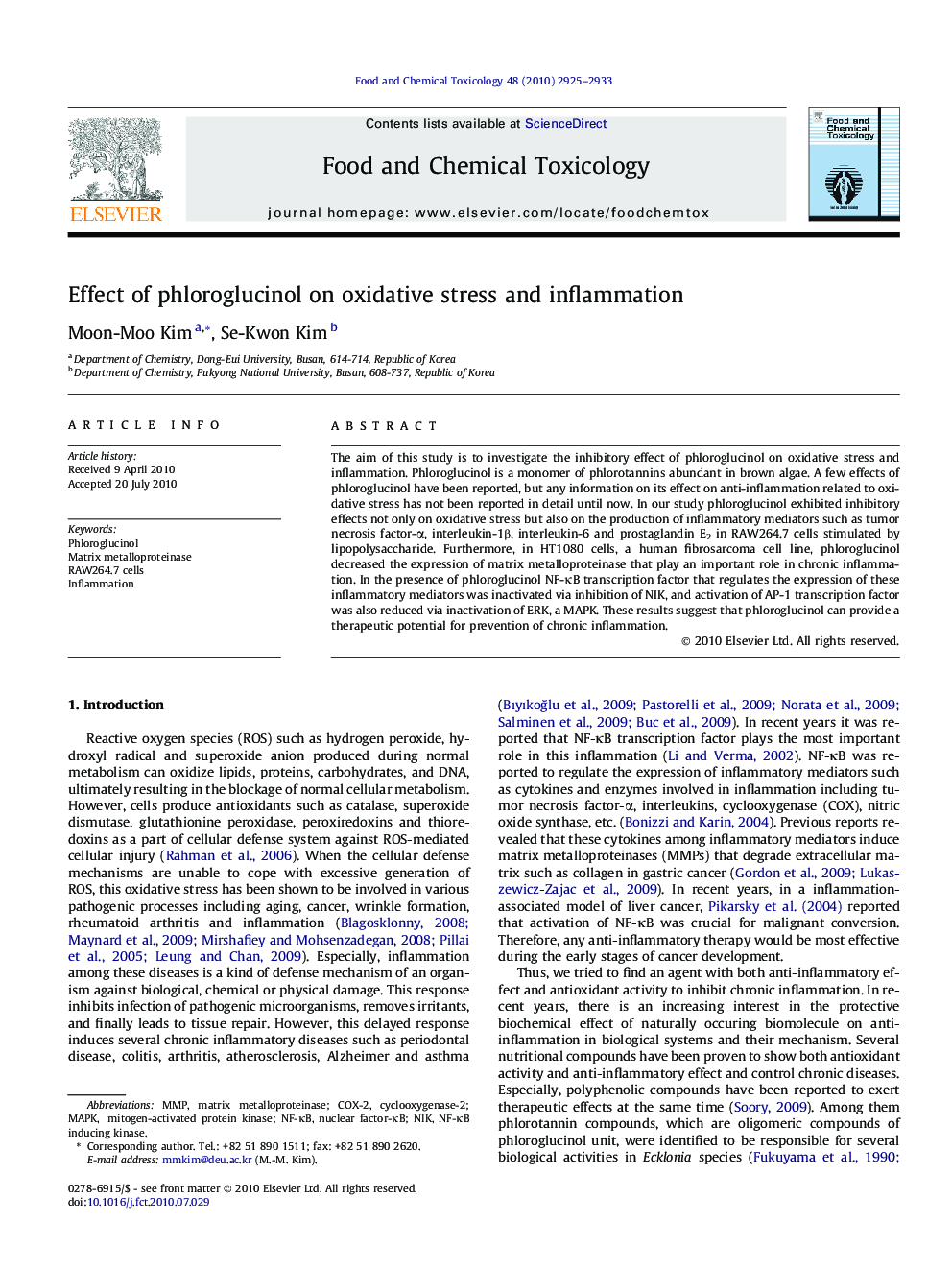| Article ID | Journal | Published Year | Pages | File Type |
|---|---|---|---|---|
| 2585611 | Food and Chemical Toxicology | 2010 | 9 Pages |
The aim of this study is to investigate the inhibitory effect of phloroglucinol on oxidative stress and inflammation. Phloroglucinol is a monomer of phlorotannins abundant in brown algae. A few effects of phloroglucinol have been reported, but any information on its effect on anti-inflammation related to oxidative stress has not been reported in detail until now. In our study phloroglucinol exhibited inhibitory effects not only on oxidative stress but also on the production of inflammatory mediators such as tumor necrosis factor-α, interleukin-1β, interleukin-6 and prostaglandin E2 in RAW264.7 cells stimulated by lipopolysaccharide. Furthermore, in HT1080 cells, a human fibrosarcoma cell line, phloroglucinol decreased the expression of matrix metalloproteinase that play an important role in chronic inflammation. In the presence of phloroglucinol NF-κB transcription factor that regulates the expression of these inflammatory mediators was inactivated via inhibition of NIK, and activation of AP-1 transcription factor was also reduced via inactivation of ERK, a MAPK. These results suggest that phloroglucinol can provide a therapeutic potential for prevention of chronic inflammation.
